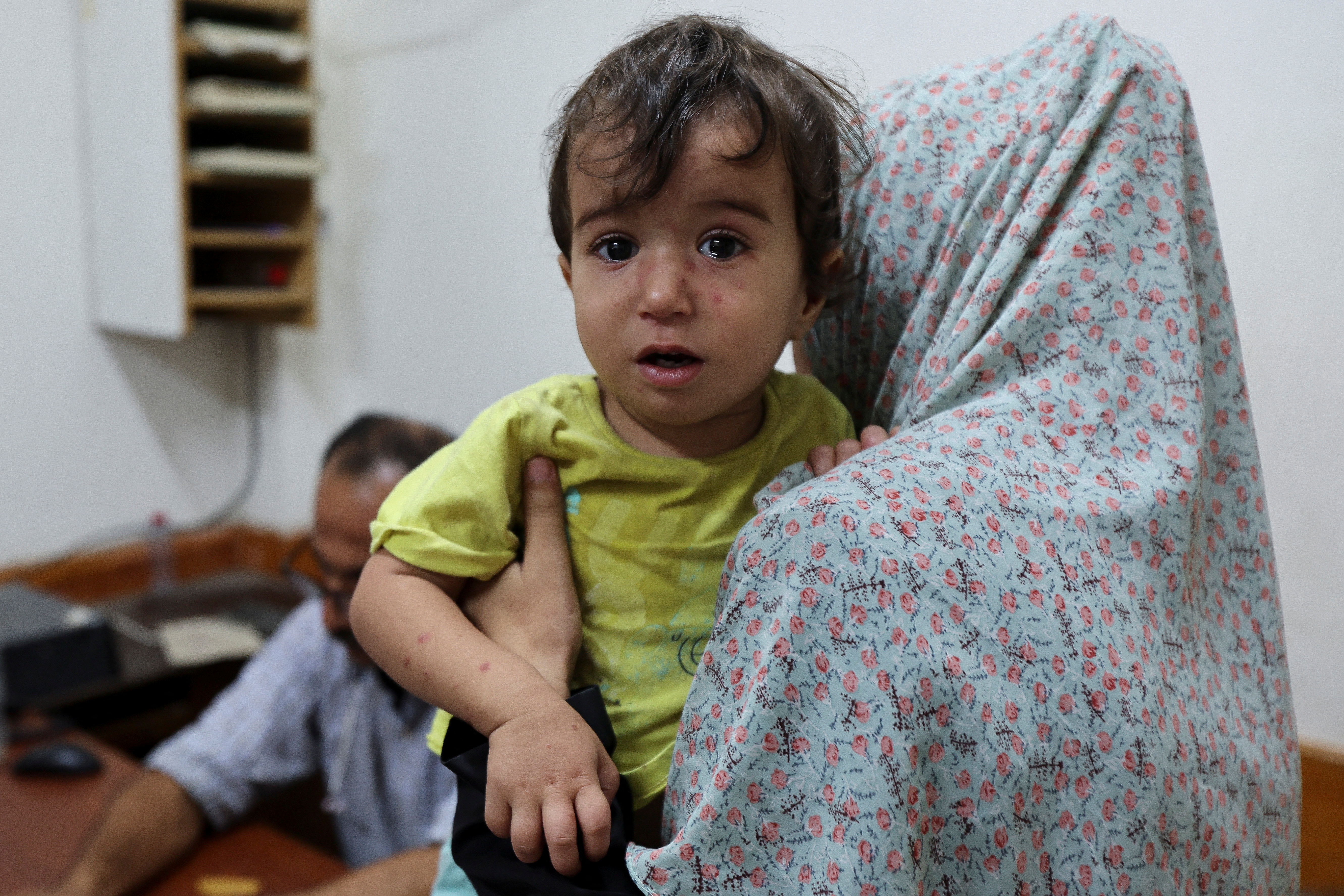In Gaza, a mother worries that her month-old son, Mohammed, could be infected with polio after the Palestinian health ministry confirmed the first case in the enclave on Friday, ending a 25 year period in which the Strip was polio-free.
Just three days after his birth, Ghada al-Ghandour’s son Mohammed started developing skin rashes.
“He had skin rashes as if he was burnt,” she said.
A doctor told her there were no creams to treat her child.
She later brought him to Al-Aqsa Martyrs Hospital in Deir al-Balah in central Gaza to seek a diagnosis and treatment.
The rash fueled his mother’s fears that other symptoms and diseases could follow due to a lack of hygiene and medical supplies in Gaza after more than 10 months of conflict.
In a statement, the Palestinian health ministry confirmed the first case of polio in the city of Deir al-Balah had been detected in a 10-month-old baby who had not been vaccinated.
Likewise, Mohammed has not received a polio vaccine.
“My son was deprived of the first vaccine in his first month,” his mother said.
Polio was detected in sewage in Gaza’s Deir al-Balah and Khan Younis governorates, Dr. Hamid Jafari, a polio specialist at the World Health Organization (WHO), said on Aug. 7, adding it was possible the virus had been circulating since September.
‘YET ANOTHER THREAT TO CHILDREN’
Poliomyelitis, which is spread mainly through the fecal-oral route, is a highly infectious virus that can invade the nervous system and cause paralysis.
Children under 5 are most at risk from the viral disease, and especially infants under 2 since normal vaccination regimens have been disrupted by the war.
“If the occupation (Israeli forces) continues to close the (border) crossing and denies access to vaccines, it will lead to a health disaster,” said Khalil al-Daqran, spokesperson of Al-Aqsa Martyrs Hospital.
Israel announced on Sunday that it would facilitate the transfer into Gaza of polio vaccines for around one million children.
More than 43,000 vials of the vaccine were expected to arrive in Israel in the coming weeks and would be sent to Gaza, according to a statement from COGAT, the Israeli defence agency that coordinated civilian matters with the Palestinians. This would be enough for two rounds of doses for over a million children, it said.
But Al-Daqran of Al-Aqsa Martyrs Hospital said a vaccination campaign could not happen without a pause in fighting.
The reemergence of polio “represents yet another threat to the children in the Gaza Strip and neighbouring countries,” the WHO said on Aug. 16.
Nearly half of Gaza’s 2.3 million population are under the age of 18 and around 15% are children under the age of 5, according to the Palestinian Central Bureau of Statistics.
Aside from the resurgence of polio and the threat of other diseases, Palestinians face a humanitarian crisis with shortages of food, fuel and water inflicting suffering every day.
The war in Gaza started after Hamas attacked southern Israel, killing 1,200 people and taking over 250 hostage, according to Israeli tallies. The death toll of Palestinians killed by the Israeli military campaign has exceeded 40,000, according to Gaza authorities.







Click here to change your cookie preferences